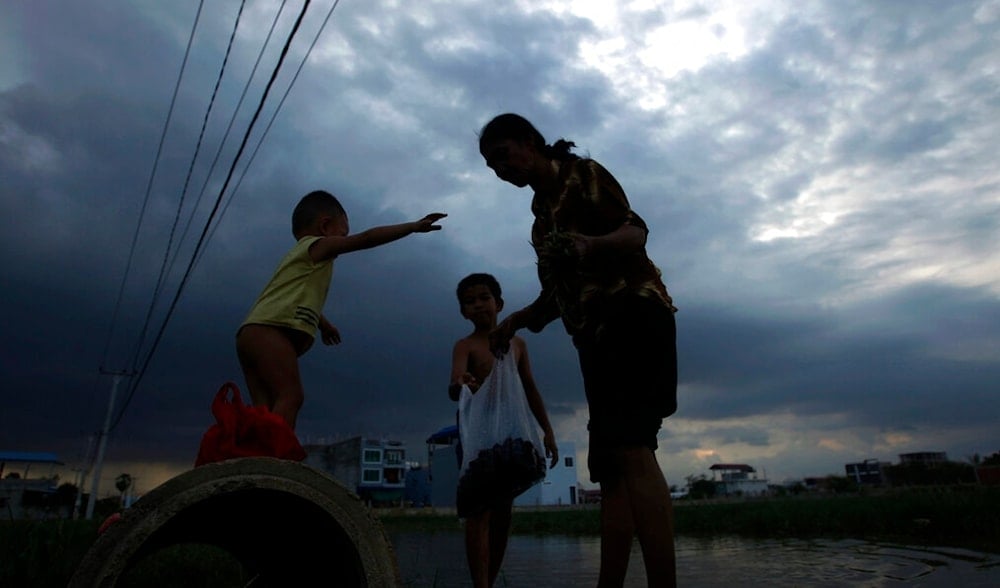Cambodia apparently enabling cybercrime trafficking industry: Amnesty
Amnesty International accuses Cambodia of enabling a billion-dollar cybercrime trafficking network exploiting victims, including children, in scam compounds across the country.
-

A woman is silhouetted as she collects river shells with her grandchildren at a flooded land following recent rain on the outskirts of Phnom Penh, Cambodia, Thursday, June 11, 2020. (AP)
Amnesty International has accused the Cambodian government of "deliberately" turning a blind eye to a vast network of cybercrime compounds that traffic and enslave thousands, including children, forcing them to commit online fraud.
In a detailed report released Thursday, the human rights organization identified 53 active scam compounds and dozens more suspected sites throughout Cambodia, including in the capital, Phnom Penh. These prison-like facilities are reportedly guarded by armed personnel and encircled with razor wire, housing victims subjected to torture, beatings, and confinement.
Amnesty confirmed that nine of the 58 survivors interviewed were children. One Chinese teenager died inside a compound, and another 16-year-old boy reported being kicked and held captive.
A Thai survivor told Reuters he was trafficked in 2023, sold between compounds, and forced to use deepfake software to scam women online. After nearly a year, he escaped by jumping out of a window and hiding in a hospital.
Criminal enterprises operating with government consent
Agnes Callamard, Secretary General of Amnesty International, said victims were “deceived, trafficked and enslaved,” warning that the Cambodian government’s inaction allows criminal operations to flourish with “apparent consent.”
The report outlines systemic failures, including the state’s refusal to investigate abuses, assist victims, or regulate the private security and torture tools used in these centers.
The Cambodian government, which previously announced the formation of an anti-trafficking task force in January under Prime Minister Hun Manet, did not respond to Amnesty’s inquiries regarding the identified compounds. Although some raids have freed victims, Amnesty found that over two-thirds of the sites remain operational or were never investigated.
In some rescue operations, police reportedly negotiated with compound representatives instead of conducting full inspections, often retrieving only the individuals who requested help. Survivors recount severe beatings after contacting authorities.
The broader picture
Cambodia, alongside Myanmar and Laos, which share borders with Thailand, has become a hub for transnational crime syndicates operating online scams, including romance fraud, fake investments, and illegal gambling.
The UN estimates that at least 120,000 people across Myanmar and another 100,000 in Cambodia may be held in conditions where they are forced to carry out lucrative online scams, with many lured by deceptive offers of high-paying jobs. The operations, according to the UN, generate more than $12.5 billion annually, over half of Cambodia’s GDP.
Thailand's prime minister recently called for a crackdown and labeled Cambodia a center for cybercrime.
Thailand has ramped up its efforts this year to dismantle the networks, particularly after the high-profile kidnapping of Chinese actor Wang Xing in January. The 22-year-old was abducted after arriving in Thailand, believing he was attending a casting call with film producers.
Read more: Thousands freed from Myanmar scam compounds in crackdown

 3 Min Read
3 Min Read










